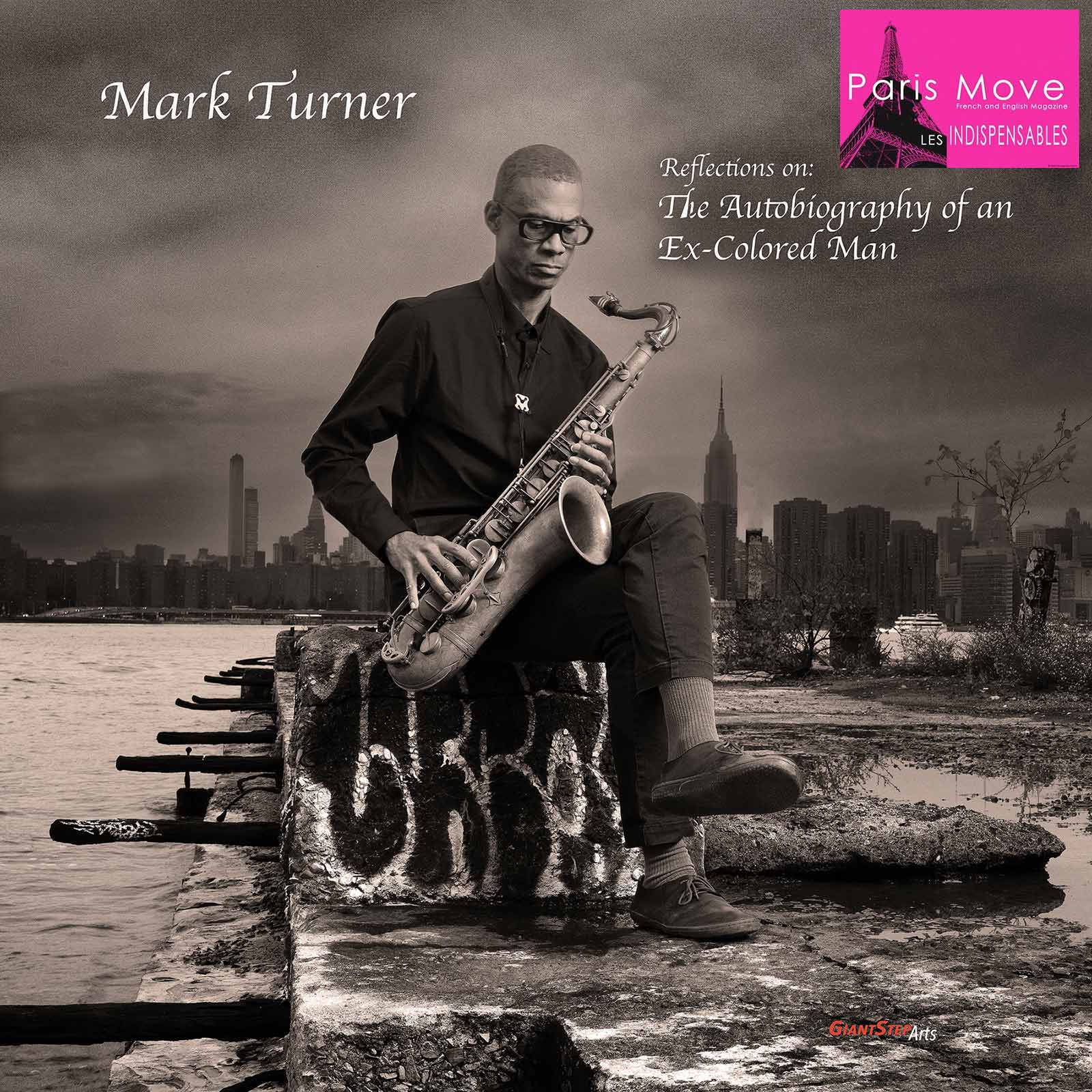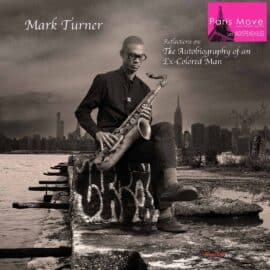| Jazz |

Between Jazz and Literature: Mark Turner and the Intelligence of Sound
Mark Turner has long been considered a musician apart, part saxophonist, part composer, part intellectual observer of his own art form. Since his debut on ECM Records in 2001, Turner has cultivated a body of work that is less a career trajectory than an ongoing dialogue, between melody and silence, between rigor and intuition, between jazz and everything beyond jazz. Listening to a Mark Turner album is never a casual encounter. His music imprints itself on the attentive listener; it opens doors not only to harmonic landscapes but also to questions, to reflections, to a kind of contemplative engagement that exceeds the boundaries of genre.
His latest project is a striking case in point. At its root is not a set of chord changes, not a compositional sketch, but a book: The Autobiography of an Ex-Colored Man by James Weldon Johnson. First published anonymously in 1912, Johnson’s novel remains one of the defining texts of African American literature, both as a cultural artifact and as a lens through which to view America’s ongoing struggles with race and identity. Fictional in form but autobiographical in urgency, the book narrates the life of a light-skinned Black man who can “pass” for white. His story moves through the South, the Harlem nightlife of the early 20th century, and the uneasy spaces between Black and white America, all the while exposing what Johnson described as the “double standard” imposed on African Americans.
It is not hard to see why Turner was drawn to this work. His music has always leaned toward the cerebral, not in the sense of coldness, but in its willingness to carry the weight of ideas. And Johnson’s novel is, at its core, about the search for coherence in a fragmented, divided world: a theme that resonates deeply with Turner’s own artistic project.
The result is not a mere “jazz and literature” crossover. It is a fusion of two modes of intelligence. Turner does not set Johnson’s words to music in the decorative sense; he extracts them, distills them, and places them in conversation with compositions that challenge the listener as much as they embrace them. “I wanted music enriched by words, not words enriched by music,” Turner has said. That distinction is crucial. The music here is not background to the text, it is an equal partner, sometimes guiding, sometimes resisting, sometimes suspending Johnson’s prose in a new light.
The Sound of Thought
On a purely musical level, the album is classic Turner: harmonically dense, rhythmically elusive, and suffused with a quiet but persistent intensity. The saxophonist’s tone, dry, burnished, capable of both intimacy and austerity, remains one of the most distinctive voices in jazz. He navigates the altissimo register not as a gimmick but as an extension of thought, a way of opening new expressive registers. This is what Miguel Zenón once described as Turner’s “tessitura”, his capacity to make the saxophone speak beyond the limits of its conventional range.
The compositions are intricate, built on layered harmonic frameworks that interlock like architecture rather than unfurl like song. Yet there is lyricism here, often understated, sometimes almost hidden beneath the surface. Melodies emerge in fragments, as if overheard in the middle of a sentence, only to dissolve back into harmonic motion. The rhythm section plays a vital role, not as accompanists but as co-architects. Their interplay, at times propulsive, at times almost suspended, mirrors the novel’s own oscillation between movement and stasis, between the desire for belonging and the awareness of exclusion.
The arrangements are rigorous, demanding of both players and listeners. But rigor, in Turner’s world, is never an end in itself. It is a way of carving out space for reflection, for resonance. The music insists on attention; it refuses to yield its meaning on first contact. Like Johnson’s novel, it asks the listener to sit with discomfort, with ambiguity, with the refusal of easy resolution.
Literature as Compass
Turner’s turn to Johnson is not a mere coincidence of taste. Two decades ago, while conducting a self-guided study of African American history, he encountered the book at Harlem’s Schomburg Center for Research in Black Culture. Johnson himself was not only a novelist but a civil rights activist, a diplomat, and the lyricist, alongside his brother J. Rosamond Johnson, of “Lift Every Voice and Sing,” later hailed as the Black national anthem. For Turner, whose music often draws from psycho-spiritual sources, Johnson’s novel offered both atmosphere and provocation. “This book created an ambiance, a set of emotions,” he has explained, “something to think about, to feel, from which to write music.”
There is also, in Turner’s choice, a kinship with other artistic traditions. The reviewer notes a resonance with Boris Vian’s I Spit on Your Graves, published in 1946 under a pseudonym. Unlike Johnson’s autobiographical fiction, Vian’s book was a deliberate invention, a provocation aimed at the hypocrisies of postwar society. But Vian, too, was a musician—a jazz trumpeter—and his dual identity as writer and performer creates a curious symmetry with Turner’s own crossing of boundaries. Literature and jazz, in both cases, are not separate domains but interwoven practices, each illuminating the other.
The Question of Balance
One of the central questions raised by this project is: who serves whom? Is the music in service of the text, or the text in service of the music? Turner himself resists easy answers, but the evidence of the album suggests an equilibrium, perhaps even a productive tension—between the two. The words are carefully chosen, strong enough to provoke thought even in brief form. The music, in turn, expands their resonance, not by illustrating them but by inhabiting their emotional terrain.
What results is not programmatic music, nor is it a simple setting of literature to sound. It is, rather, a kind of double meditation: the text reflecting on the condition of race and identity in America, the music reflecting on the possibility of coherence, beauty, and meaning in the face of fracture. The two strands do not always align, but their very friction produces energy.
A Major Work
It is tempting, in our age of overstatement, to call every ambitious project “important.” But in this case, the term seems justified. Turner has created an album that is not only musically rigorous but culturally resonant, an album that will likely stand among the most consequential jazz releases of 2025. It is a work of depth and universality. Its themes are not bound to one community or one history, though they emerge from a specifically African American experience. Rather, they extend outward, inviting listeners of all backgrounds to engage with questions of identity, belonging, and humanity.
At its heart, this is an album about intelligence, not the cold intelligence of calculation, but the deeper intelligence of empathy, of attention, of listening. Turner has always been a musician who asks more of his audience than most. Here, he asks not only that we listen but that we reflect, that we recognize ourselves in the struggles of others, that we allow music and literature together to remind us of what it means to be human.
The result is more than an album. It is, in the truest sense, a lesson in life.
Thierry De Clemensat
Member at Jazz Journalists Association
USA correspondent for Paris-Move and ABS magazine
Editor in chief – Bayou Blue Radio, Bayou Blue News
PARIS-MOVE, September 24th 2025
Follow PARIS-MOVE on X
::::::::::::::::::::::::
Musicians :
Mark Turner, tenor saxophone and narration
Jason Palmer, Trumpet
David Virelles, piano, profit & organ
Matt Brewer acoustic & eletric bass
Nasheet Waits, drums
Track Listing
Moment 1. Anonymous
Moment 2. Jusxtaposition
Moment 3. Pulmonary
Moment 4. New York
Moment 5. Europe
Moment 6. The Texan… The Soldier
Moment 7. Mother… Sister… Lover
Moment 8. Pragmatism
Moment 9. Identity Politic
Moment 10. Closure

